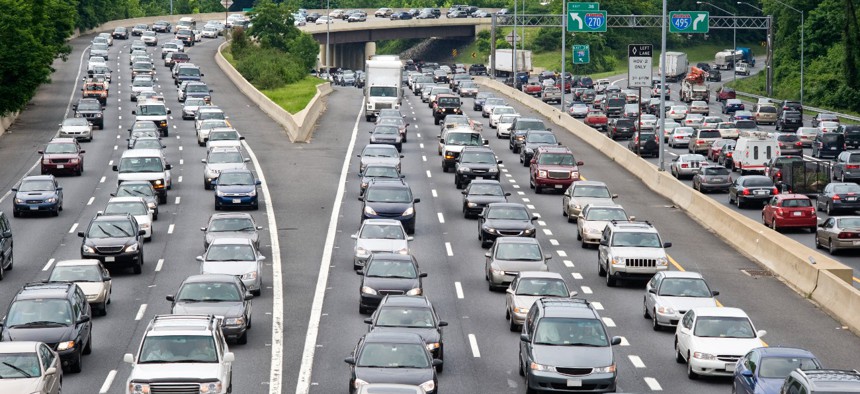The White House shares new details on plan to bring more feds back in April

burwellphotography / Getty Images
Agencies across government will take on new responsibilities and offer more in-person services under Biden's new COVID-19 preparedness plan.
The Biden administration plans to significantly expand the number of in-person services available to Americans at federal agencies next month, calling on civil servants to lead by example in getting U.S. workers back to their normal offices and duty stations.
After two years of much of the federal workforce teleworking, President Biden is looking to bring agency employees back to their offices to demonstrate the nation is returning to the pre-pandemic normal. Biden first teased the plan in his State of the Union this week and the White House offered more details in its National COVID-19 Preparedness Plan released on Wednesday.
“COVID-19 no longer needs to dictate how we work,” the White House said. “Federal agencies will lead by example, increasing the hours public-facing offices are open for in-person appointments and in-person interactions in the month of April.”
The White House pointed to the Social Security Administration as an agency that would soon expand in-person services, a plan Government Executive first reported in January. The administration will "build on innovation and online tools" agencies developed during the pandemic to improve their service delivery, according to the plan.
The White House highlighted the critical role federal employees have played throughout the pandemic, including the 9,000 federal personnel who have deployed to help run mass vaccination and other sites. Going forward, the Biden administration will ensure the Federal Emergency Management Agency can stand up mass vaccination sites rapidly upon a state’s request. FEMA has already established a playbook for the sites, allowing the agency to quickly do so again as needed, in conjunction with the Health and Human Services and the Defense departments. The White House will also seek funding to ensure federal agencies, such as the Veterans Affairs Department and Indian Health Service, can continue vaccinating their constituents directly.
The White House on Thursday formally sent its request for supplemental funds to Congress, asking for $22.5 billion “to cover immediate needs for tests, treatments and vaccines, investments in research and development of next-generation vaccines, and responding globally, including getting more shots in arms around the world.”
Also as part of its funding request, the administration is seeking money to ensure agencies can facilitate vaccines for children under five once they are approved. Agencies like the National Institutes of Health, Food and Drug Administration, and Defense Department will continue to help develop and manufacture vaccines, with the goal of ensuring the United States produces 1 billion vaccine doses annually.
The White House is asking for money to procure more treatments for COVID-19. Biden announced his “test-to-treat” plan during his State of the Union, which will allow individuals who test positive for the disease at a pharmacy to immediately receive medicine to combat it. Under the new plan, the Veterans Affairs Department will also build out “test-to-treat” capacity. The Health and Human Services Department will request funds to launch a public information campaign to educate Americans on the availability of therapeutics.
The White House announced that a new group formed this year—HHS Coordination of Operations and Response Element (H-CORE)—will oversee the development and delivery of vaccines and therapeutics, as well as N95 masks to health clinics. The team is made up of logistics and supply chain experts, contracting officers and public health officials. HHS will also ramp up wastewater surveillance, while the Occupational Safety and Health Administration will issue new guidance for safe ventilation and other workplace improvements.
The White House highlighted the interagency collaboration taking place to fight the pandemic, such as a streamlined process between NIH and FDA to approve at-home tests. The State Department, U.S. Agency for International Development and the President’s Emergency Plan for AIDS Relief will continue to work on getting the rest of the world vaccinated, including boosting manufacturing capacity in foreign nations. The administration plans to build a “large stockpile” of rapid tests, similar to the personal protective equipment the federal government keeps in stock. HHS and Defense will continue their partnerships with the U.S. Postal Service to deliver at-home tests. So far, USPS has delivered 270 million tests to 68 million households.






